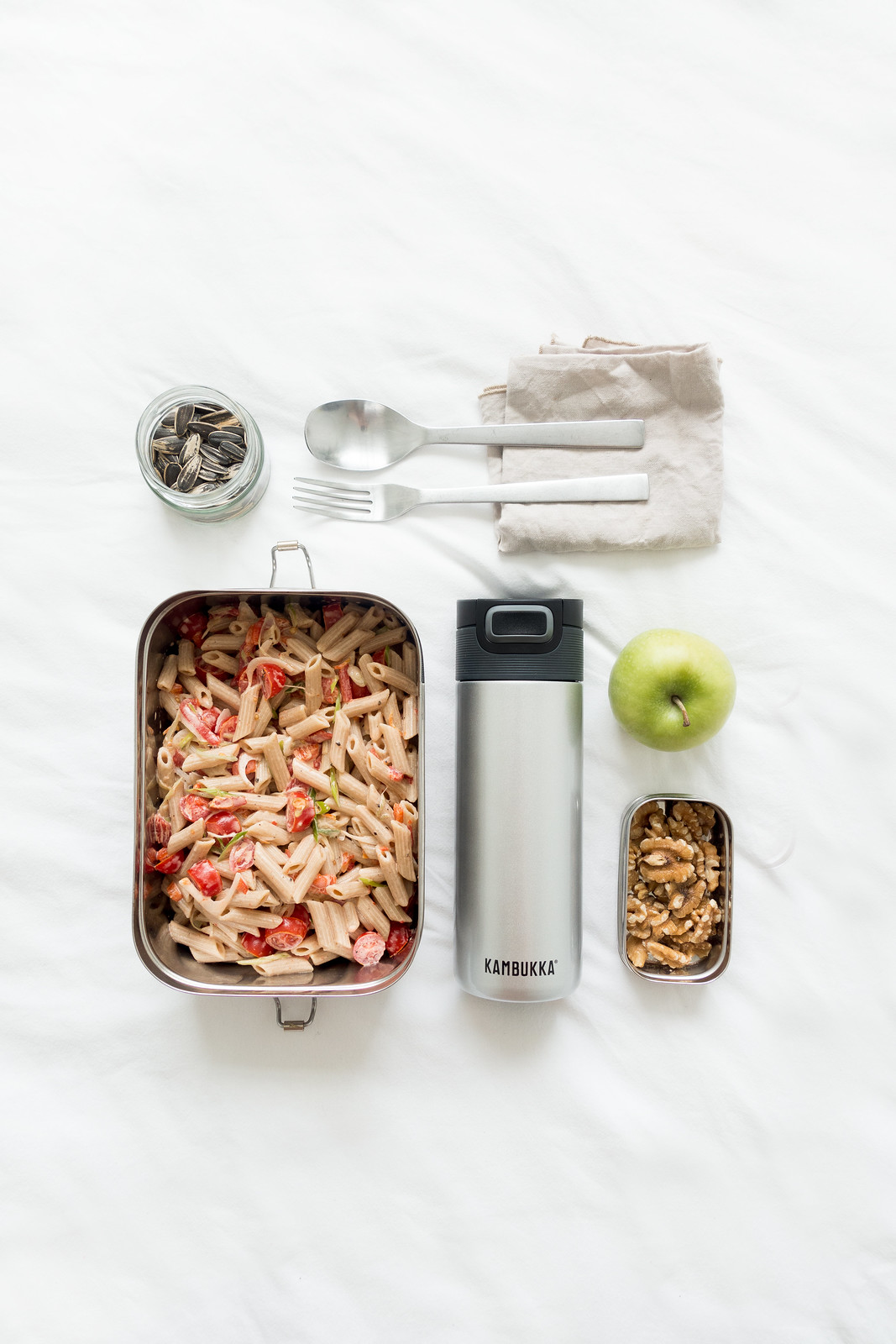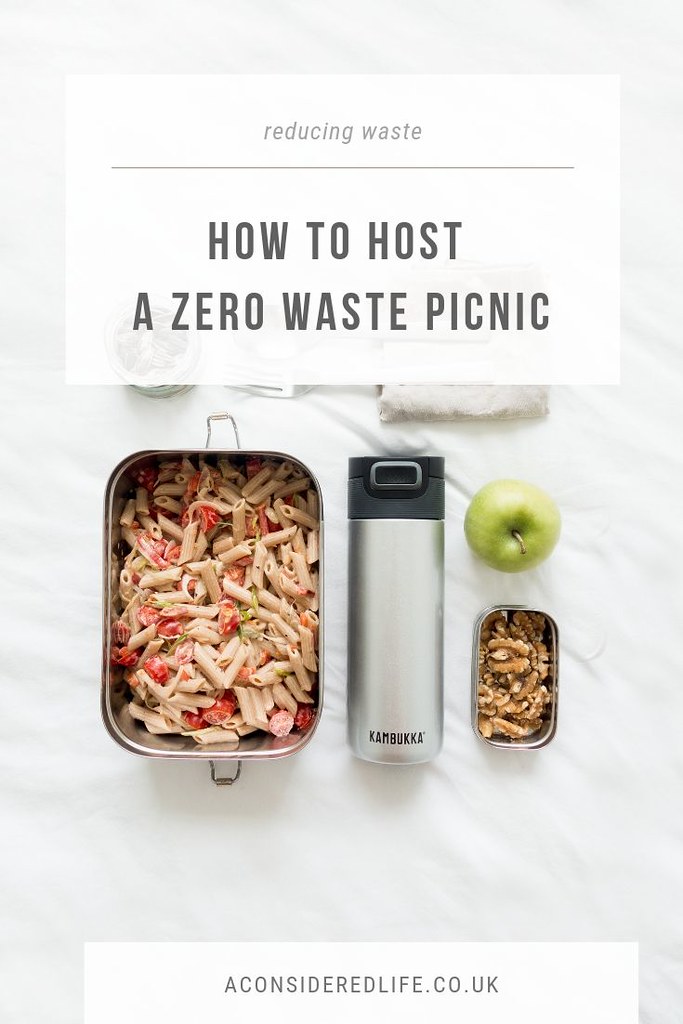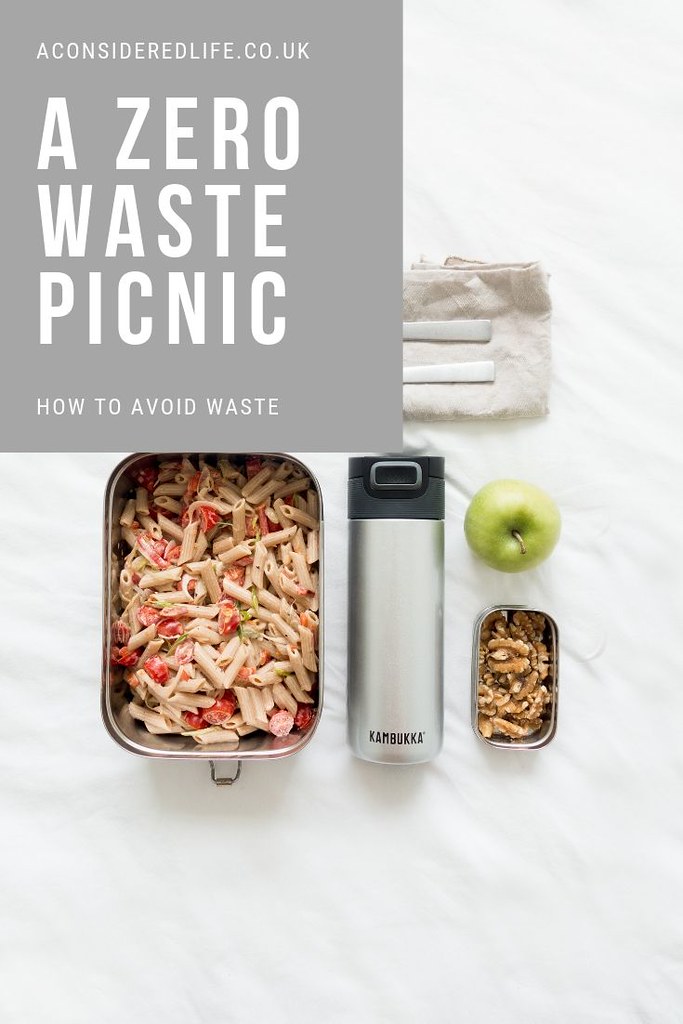
On first consideration, picnics appear to be relatively low waste and fuss-free. Then you start to think of all the dishes and dips that need to be prepped, cooked, and transferred into containers; plates and cutlery that needs to be sourced; drinks bought, napkins packed, and guests invited. Time suddenly isn't on our side and it starts to feel easier (and less stressful) just to buy all the food we need pre-prepared, and that's where things start getting wasteful. Eating outside is a joy; if you're as keen to have as many picnics as summer will allow, there's a few ways to make them as fun as they as fuss-free.
Food and Drink For Consuming
In an ideal world, everyone could drop by their local market and packaging-free store to pick up picnic treats. If you do not live by either, you can still provide a low waste picnic. Look for plastic-free produce in your local supermarket, opt for recyclable (glass, cardboard, or paper) packaging, and make your own picnic food. If you’re hosting, an option would be to have a potluck picnic where each guest brings a dish or desert. Alternatively, pick a few quick and easy recipes to provide food for your guests or offer to bring a dish or desert to the picnic if you’re the guest. If time or skill is an issue, visit delis, market stalls, and bakeries where you can find pre-made foods, which you can take away in your own containers.
For drinks, make your own cordial, brew iced tea or coffee, bring a bottle of wine, or even a selection of soda in recyclable cans. A low waste picnic doesn’t mean you’re limited to drinking only chilled tap water brought from home (although I do recommend packing a couple of bottles regardless). There are plenty of options when it comes to zero waste beverages just be mindful of the packaging and bring your own cup.
Containers For Serving
Use what you have, whether that’s lunch tins, repurposed plastic containers, tupperware, or glass jars – they all work. If it’s just you and a loved one, the storage containers can double up as serveware if you don’t mind sharing; no need to bring extra plates and bowls. Salads do well in generously sized lunch boxes, sandwiches can be wrapped in large napkins (and securely tied) or reused paper bags; coleslaw, kimchi, marinated tofu, olives, and pickles can be decanted into glass jars. Little pots can be used to serve jams and spreads, and veggies can be stored in small tubs or containers. Whatever you have, make it work.

Plates and Cutlery For Dining
The answer is simple: bring your own from home. If you’re hosting, encourage guests to bring along their own plate or bowl and cutlery. If you’re a guest, pack a few extra (if you can) for those who forget. Chopsticks are great for plucking olives and pickles out of jars, while spoons are essential for serving up the main event. I find knives are mostly redundant since a fork and a spoon can tackle almost anything at a picnic. Slice up bread, cake, and other foods that tend to require large, sharp knives, and store them in a cake tin or something similar. Forgot your plate? Napkins can be used, in a pinch, to cradle sandwiches and biscuits. It’s entirely possible to avoid serve ware altogether if you opt for finger foods; sandwiches, veggies and dips, samosas, mixed nuts, pies, and spring rolls are all good options, as are cupcakes, muffins, and biscuits.
Cups For Drinking
If you’re attending, bring your own cup; if you’re hosting, encourage guests to bring their own reusables. It could be a cup, a bottle, a flask, or a jar – whichever you prefer. Jars are just as good as cups for serving drinks in, whether that’s water or alcohol. Flasks are great for keeping hot drinks hot and cold drinks cold, or for storing chilled soups; they can be rinsed after the contents are consumed to be used as a water bottle.
Napkins For Wiping
Linen napkins are my favourite. They’re absorbent, dry quickly (useful when things get messy), and durable. Pack a stack for your picnic and hand them out to guests or ask guests to please pack their own.
Empty Jars For Composting
Fruit peels, veggie scraps, and other compostable food items can be taken home and composted. Pack a spare jar (or use an empty container) for filling up with picnic leftovers and find somewhere better than the bin for them to be disposed of.

